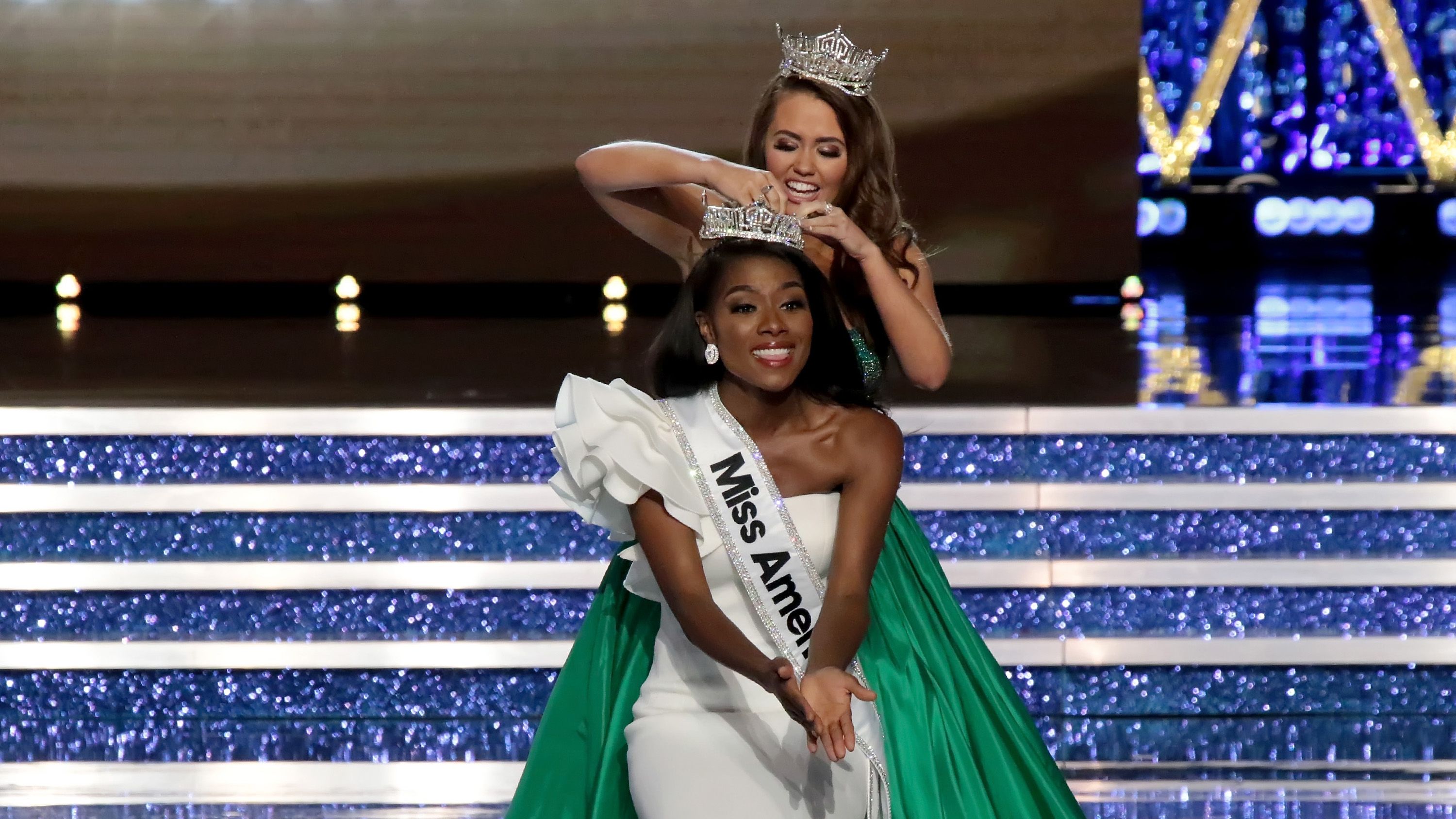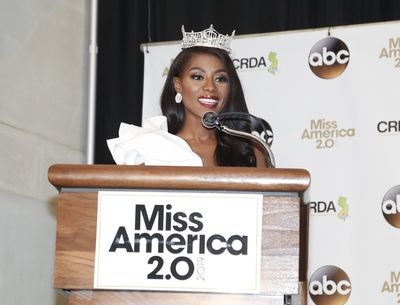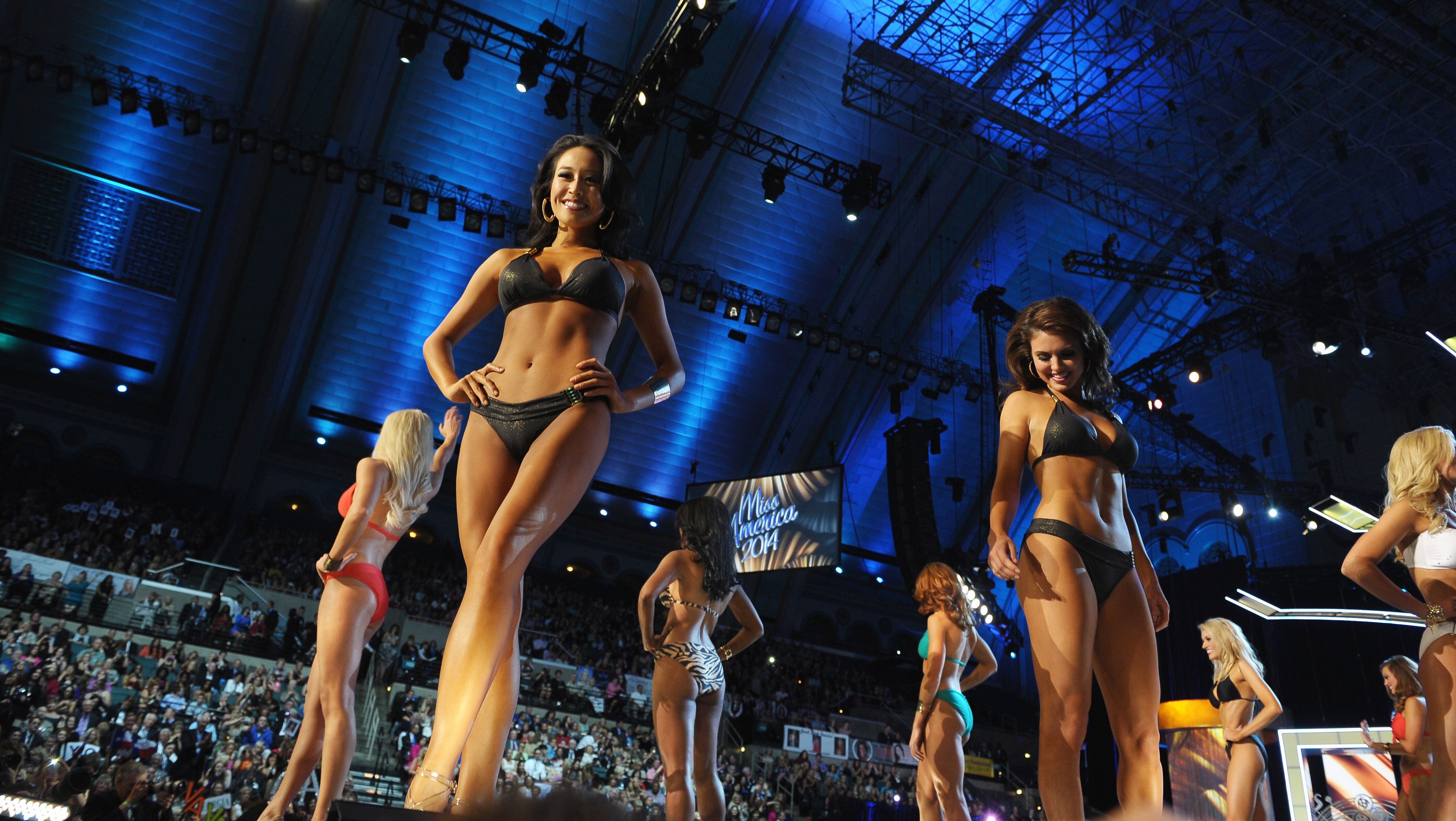Without the Swimsuit Competition, Miss America Feels Different This Time Around
Last night's event is being called Miss America 2.0.

Earlier this summer, when the Miss America Organization announced that it would be putting an end to the pageant’s famed swimsuit competition, the news was met with mixed emotions. The decision to cut that portion of competition (as well as the evening wear competition) was made under the organization’s now mostly-female leadership, including Gretchen Carlson, who hinted at the #MeToo movement when she went on Good Morning America in June and said, “We are moving [the pageant] forward and evolving it in this cultural revolution.”
Meanwhile, opponents of the change feared a ratings crash that would mean fewer advertisers who could keep the pageant going (since, for better or worse, the swimsuit competition tended to draw eyeballs).
Sunday night saw the first major televised Miss America competition since the sweeping changes were implemented—organizers even called it Miss America 2.0—and it was as if “being modern” was this year’s theme.
Most importantly, Sunday saw the crowning of Miss New York Nia Imani Franklin as Miss America. This made Franklin the first African American contestant to win since 2010, and one of only a handful of Black contestants since the pageant began (Vanessa Williams, who also represented New York in the 1983 competition, was the first African American Miss America).

Miss America Nia Franklin
A classically trained opera singer, Franklin made her advocacy for school music programs known during the competition. She mentioned at one point, per the New York Times, how “there is a 20 percent higher graduation rate at schools where music is a part of the curriculum.”
After the event, Franklin told press, "I've already seen so many young women reaching out to me personally as Miss New York asking how they can get involved because I think they feel more empowered that they don't have to do things such as walk in a swimsuit for a scholarship. And I'm happy that I didn't have to do so to win this title tonight because I'm more than just that."
Is it a little weak that the crowning of an African-American Miss America is considered groundbreaking in 2018? Maybe. But if this year's televised event was a course-correction after years of being behind the times, Miss America should be focusing on increasing the diversity of not only its competition, but its winner pool.
Get exclusive access to fashion and beauty trends, hot-off-the-press celebrity news, and more.
Franklin's win wasn't the night's only progressive moment. Earlier in the competition, Miss Michigan Emily Sioma introduced herself with a line so issue-focused that it would have seemed out of place in other Miss America pageants: “From the state with 84 percent of the U.S.’s fresh water but none for its residents to drink, I am Miss Michigan Emily Sioma.” The intro even made for a viral tweet:
“from the state with 84 percent of the u.s. fresh water but none for its residents to drink, i am miss michigan emily sioma” — the new #missamerica2019 pageant did not come to play pic.twitter.com/H05eifix2eSeptember 10, 2018
Sioma was referring to the ongoing water crisis in Flint, Michigan. The lead in the city’s outdated piping leaked into its portable water supply, leading to a deadly crisis that primarily impacts low-income residents, many of them Black. The issue remains largely unresolved since 2014, for reasons related to corruption, racism, and neglect.
Though the competition has had moments of political outspokenness from contestants, it still felt surprising to hear an issue this complicated and specific brought to the fore at Miss America—even if it is one of the biggest problems plaguing Sioma's home state. But this is Miss America 2.0, and if a young woman who wants to truly represent her home state can’t speak to its real issues during competition, what was the point of re-angling Miss America in the first place?
In just a few hours, Si0ma has already brought Flint's water crisis back into the national conversation. (Wrote The Detroit News: "Sioma, a University of Michigan graduate who majored in women's studies, was a contender...for Miss Internet.") Just imagine what this competition could really do for America if contestants made it about their state's biggest issues.
No matter what happens going forward, Sunday night was a coup for the organization, which had a lot to prove after its pivot away from more looks-focused competition. This year's pageant may have shown conclusively that even—or maybe especially—without a swimsuit competition, there are reasons to tune into Miss America.
RELATED STORIES


Cady has been a writer and editor in Brooklyn for about 10 years. While her earlier career focused primarily on culture and music, her stories—both those she edited and those she wrote—over the last few years have tended to focus on environmentalism, reproductive rights, and feminist issues. She primarily contributes as a freelancer journalist on these subjects while pursuing her degrees. She held staff positions working in both print and online media, at Rolling Stone and Newsweek, and continued this work as a senior editor, first at Glamour until 2018, and then at Marie Claire magazine. She received her Master's in Environmental Conservation Education at New York University in 2021, and is now working toward her JF and Environmental Law Certificate at Elisabeth Haub School of Law in White Plains.